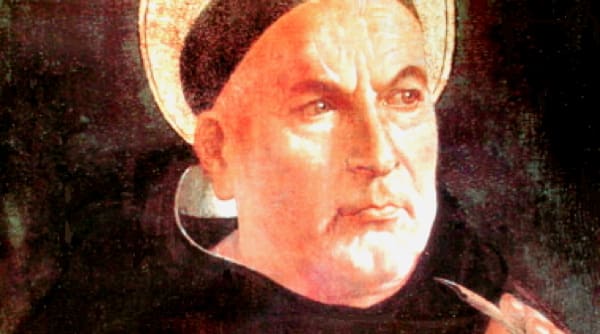Dear Father John, I try to love God above everything and everyone else, but I’m not sure how. I’m not even sure that I am doing that. Can you help?
 THE MERE FACT that you are [thinking about this] shows that you already desire the most important thing: to know, love, and follow Jesus Christ more fully every day. That desire is supernatural. You couldn’t have stirred it up on your own. Its presence in your soul shows without any doubt that God is with you and acting in your life. The engine of holiness is already humming in the depths of your heart, just as it was for the Blessed
THE MERE FACT that you are [thinking about this] shows that you already desire the most important thing: to know, love, and follow Jesus Christ more fully every day. That desire is supernatural. You couldn’t have stirred it up on your own. Its presence in your soul shows without any doubt that God is with you and acting in your life. The engine of holiness is already humming in the depths of your heart, just as it was for the Blessed  Virgin Mary. As the Preface of the Mass for Advent puts it: “…The Virgin Mother longed for him with love beyond all telling.” Your longing to love God more fully, even if it seems to be a small or dim longing way down in the basement of your being, is in itself a movement of a very deep love for him, a love that gives him immense pleasure.
Virgin Mary. As the Preface of the Mass for Advent puts it: “…The Virgin Mother longed for him with love beyond all telling.” Your longing to love God more fully, even if it seems to be a small or dim longing way down in the basement of your being, is in itself a movement of a very deep love for him, a love that gives him immense pleasure.
The deep longing for fulfillment, the yearning to come closer to Christ, is itself the work of Christ. He plants good, holy desires in the human heart so that he can later fulfill them. Through this longing, God is drawing you closer to his divine heart, where you will find more than you could ever have imagined, where your most intense desires will be satisfied to overflowing. As St. Thomas Aquinas put it when commenting on the fullness of love that the faithful experience in heaven:  “Eternal life is the perfect fulfillment of desire; inasmuch as each of the blessed will have more than he desired or hoped for.”1
“Eternal life is the perfect fulfillment of desire; inasmuch as each of the blessed will have more than he desired or hoped for.”1
Knowing that God is leading us to this glorious, indescribable destination should be an ongoing source of encouragement for all of us, as it was for St. Paul: “What eye has not seen, and ear has not heard, and what has not entered the human heart, what God has prepared for those who love him…” (1 Corinthians 2:9). We have that to look forward to.
A Precise Totality of Love
Jesus summarized our part in the fulfillment of this longing when he gave us the two great commandments. But fulfilling those commandments requires understanding them. What exactly was Jesus trying to tell us when he commanded us: “You shall love the Lord, your God, with all your heart, with all your soul, with all your mind, and with all your strength”? This, according to our Lord, is the first and greatest commandment, which overflows into the second most important commandment, “You shall love your neighbor as yourself”(Mark 12:30—31, RSV).
We have two possible interpretations for the verse about loving God. First, Jesus may have simply been using many terms to say one thing: Love God totally! His use of the terms “heart, soul, mind, and strength” may have been simply a rhetorical device, a poetic way of expressing totality, emphasized by his fourfold repetition of the word “all.”
Yet, on the other hand, Jesus may have been consciously referring to the different powers of the soul when he listed those four modes of loving God. He may have meant exactly what he said, giving us clear instructions about what mature love for God looks like: it fills and overflows from the four main dimensions of human nature–the heart, the emotions, the intelligence, and the will.
These two interpretations are not mutually exclusive. They actually complement each other. To love God totally means to love him with every fiber of one’s being. And that means integrating every sector of one’s life and every capacity of our human nature into a true friendship with Jesus Christ.
In part II, we will: talk about going beyond self-help lists, introduce the four arenas of love, and savor the promise.
1 St. Thomas Aquinas, Exposition of the Apostles’ Creed, XII. 42.
+++
Editor’s Note: This is another excerpt from Father John Bartunek’s new book “Seeking First the Kingdom” filled with “practical examples and down-to-earth wisdom which will show you how to bring Christ into each facet of your life”. Click here to learn more about the book…or if you wish to get it for a friend or relative who doesn’t read on line.
+
Art: Detail of a stained glass window of the Holy Family, depicting Madonna and child (right part of the window), Andreas F. Borchert Photo, Location=Church of the Immaculate Conception, Ballymote, County Sligo, Ireland, 23 September 2010, CC; Adventkranz (liturgisch), Andrea Schaufler, own work, 2 Dez 2006, CC; Aquinat [Thomas Aquinas], Sandro Botticelli, PD-US; Wikimedia Commons.


